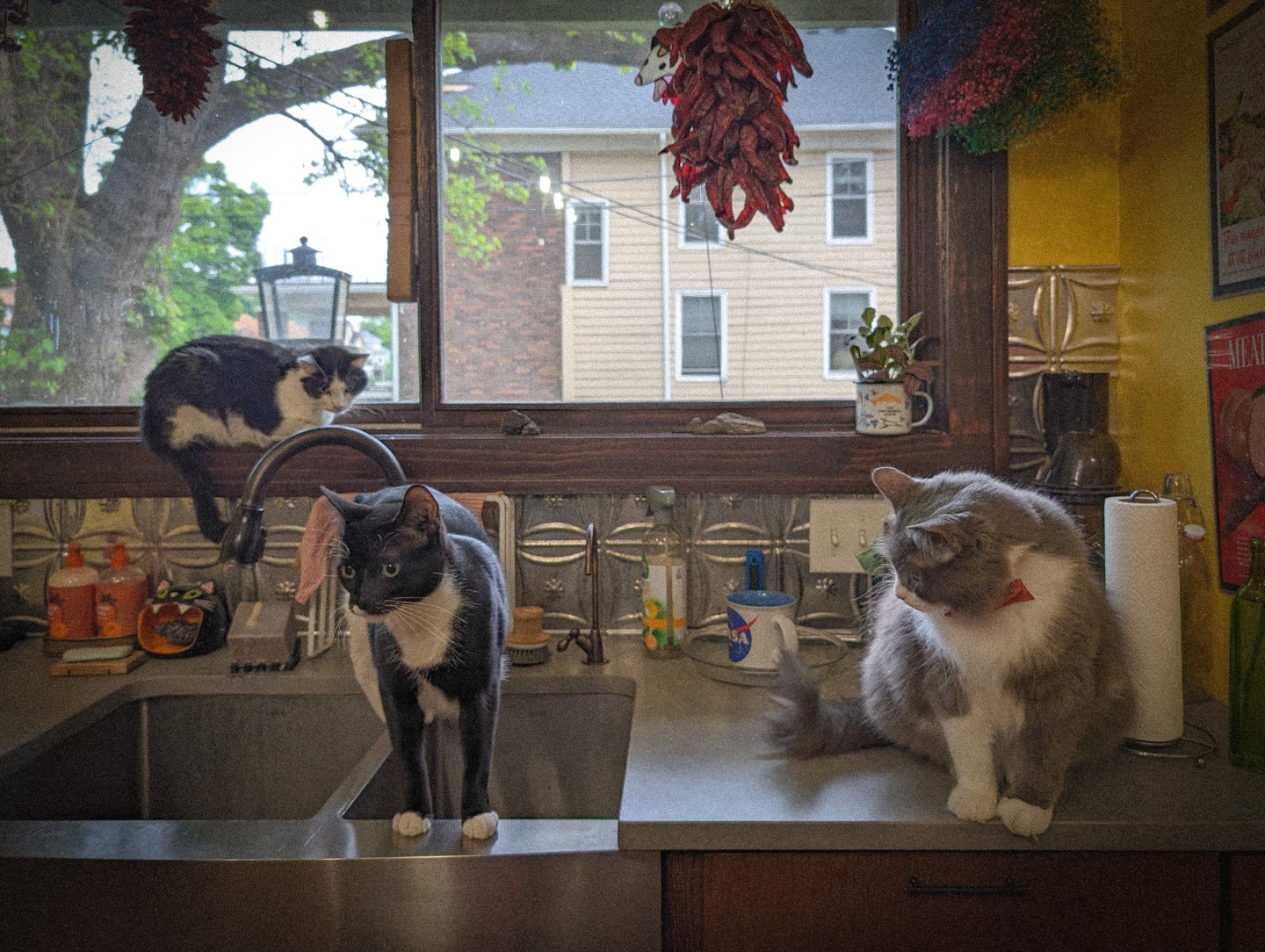Recently I saw a post in a Facebook group called “Poly Memes and Things”, which is pretty much the only polyamory community I’m involved in. I have found most online polyamory groups to be either terribly toxic or cringey and weird attempts to be dating groups. Poly Memes & Things, though, has stood the test of time and passed the vibe check mostly because of the strong, fair, and kind moderation from the community leaders in that group. While ostensibly it’s about memes and meme-dumping and can be quite funny and useful in that regard, it has also doubled as a support group and community space for a lot of people who are new in their non-monogamy journey. It’s a safe place to ask advice and questions without judgment, and so I have stuck around.
Today an anonymous member made a post that started: “I think I’m monogamous.” (They were previously polyamorous). They went on to say: “I’ve fallen in love with someone. And I think I’m satisfied with just them. Can I stay here for the memes?”
This made me think about something I’ve talked about a few times before, but this particular comment really made me hone my own definition of non-monogamy and how it applies to me and my life. I want to be clear that this is my definition and my own personal idea of what makes polyamory so liberating and loving.
For me, being polyamorous means that I am able to navigate human connection without the guilt and baggage of patriarchal and toxic monogamy. It does not mean “I have to have more than one partner”. You can absolutely be committed and dedicated and in love with one person for the rest of your life and still be polyamorous. We are all capable of loving more than one person, but there is nothing requiring that love to manifest or present as a romantic or sexual relationship. The following list is a list of examples I came up with that could fit perfectly into any healthy and secure relationship, monogamous or otherwise.
Polyamory means:
- I can have close friends of any gender without it being weird and without my partner(s) getting upset.
- I can cuddle and be physically affectionate with other people and my partner(s) don’t get jealous or possessive.
- I can tell my partner(s) that I’m going out after work for a drink with a colleague of any gender and they say, “Have fun and be safe” or “Bring me some carryout” or “let me know if you need a ride” instead of becoming angry and demanding an explanation.
- I can scroll through social media and follow and like pictures of people and chat in DMs with people I find attractive without my partner(s) getting angry or considering it cheating.
- I can form deep, intimate, and meaningful relationships with anybody I want, and so can my partner(s).
- I can make travel plans with people who aren’t my partners, because I am an independent human being and so are my partners.
- I can have hobbies and participate in activities that don’t include my partner(s) because we all have different interests.
- I can keep things private from my partner(s) and they can keep things private from me. We don’t own each other, and we are all entitled to privacy as a fundamental right.
- I can be freely and radically honest with my partner(s) because they know I love them. They can be freely and radically honest with me, because I know they love me.
- My partner(s) trust me completely. I trust them completely.
- I can say “I love you” to people who aren’t my partner(s) because we are capable of loving more than one person at a time and love is a wide spectrum of connection.
Now of course, mainstream society gets extremely hung up on the sexual aspects of non-monogamy, and that is reinforced through ham-handed and insipid representation (if you can call it that) in TV shows and other media1 that is currently used as a titillating form of entertainment. The sexual aspects are often the “really hard part” for many people who have considered opening (and then often re-closing) their relationships, but I firmly believe that the sexual hang-ups are a separate issue that generally needs professional navigation through therapy and intentional deconstruction of societal upbringing. Once you get over that part, the real work begins.
Consensual non-monogamy (or ethical non-monogamy, or polyamory, or whichever label you prefer) means a lot of things to a lot of people, but at the end of the day, it’s just a framework that says, “the way we’ve been taught to navigate relationships in our culture is toxic and worth deconstructing”. It is not any more prescriptive than that.
Final thoughts: I needed a picture for this post, and I decided to just go with my three cats because almost everybody loves cats and I’ve lost control of my life and they just have taken over my house completely please help. Please come pet my cats.
- I have to say that the most loving and kindest polyamory representation I’ve ever seen in popular media was in season 2 of American Horror Story: “Asylum”, where one of the main characters, Kit, was in love with Alma and Grace, and they formed a polyamorous family unit that included their children. While yes, it ended horribly because this is a horror story, the way the relationship was represented was actually quite fair and kind. ↩︎

